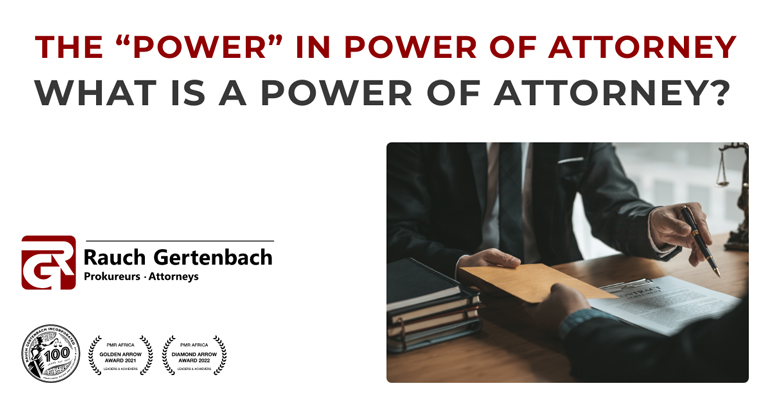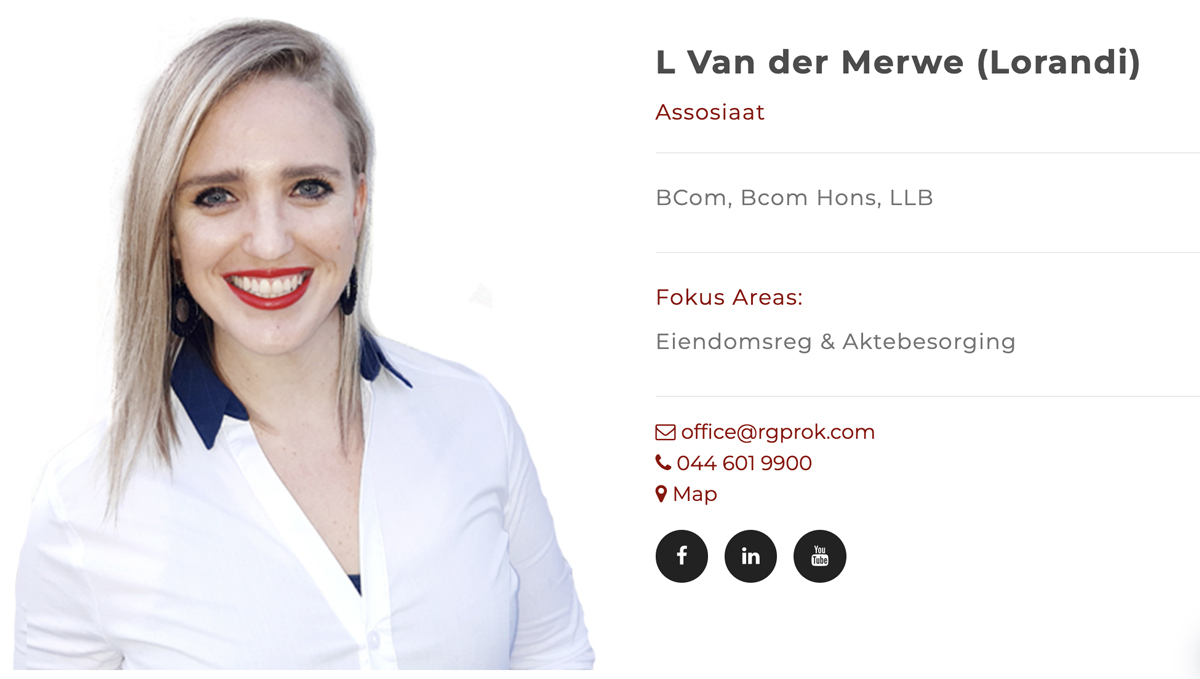THE “POWER” IN POWER OF ATTORNEY
WHAT IS A POWER OF ATTORNEY?
A Power of Attorney (“POA”) is a written document which provides legal authorisation to a designated person(s) (the agent) to act for and on behalf of someone else (the principal). The agent can be given broad or limited authority (power) to act on behalf of his/her principal regarding the principal’s property, finances, investments etc. This article will focus on Powers of Attorney in relation to its functions in the transferring of immovable property in South Africa.
SPECIAL AND GENERAL POWERS OF ATTORNEY
Although various types of Powers of Attorney exist, we will distinguish between the Special Power of Attorney and General Power of Attorney.
Special Power of Attorney
A Special POA enables the agent to do one act only, for example to sell and transfer immovable property. It lapses on completion of the act and is not registered in the Deeds Office. In this scenario, two types of Special Powers of Attorney may be granted – “power of attorney to sell or otherwise deal with land” – the nominated agent is authorised to sell and sign transfer documents on behalf of his/her principal and “power of attorney to pass transfer” which authorises a CONVEYNCER to register the transfer of land or a mortgage bond on land in the deeds registry, both of which will lapse after the completion of the acts specified in the Special POA.
General Power of Attorney
A General POA is in effect a compilation of Special Powers of Attorney contained in a single document. A General POA does not necessarily lapse after a single act, as it can be used more than once if it is registered in the Deeds Office. If said General POA is not registered when transferring immovable property, it will lapse, like a Special POA, and cannot be used for the transfer of another immovable property.
A General POA normally grants various acts that can be performed by the agent on behalf of the principal which include dealing with the principal’s finances. Some banks, government offices, and other institutions that deal with financial matters do not accept General Powers of Attorney, due to the frequent abuse of powers. These financial institutions draft their own Powers of Attorney acceptable to their standards.
SIGNING YOUR POWER OF ATTORNEY OUTSIDE THE REPUBLIC OF SOUTH AFRICA
As the world economic markets became easily accessible, more and more South Africans are pursuing employment abroad. Foreigners are also purchasing more property in South Africa and it is thus not always possible for all parties to be physically present when signing transfer documents with your transferring attorney. In these instances, a POA can be a nifty tool. It is, however, more tricky if you sign your POA outside the borders of South Africa.
A POA is granted (signed) by the principal and attested by two competent witnesses. Powers of Attorney signed outside the Republic of South Africa for use in South Africa, must be duly authenticated either as set out in Rule 63 of the High Court Rules or as stipulated in the “Convention Abolishing the Requirement of Legislation for Foreign Public Documents”. The place (foreign country) where you are signing your documents will determine the authentication process that must be followed and can be a costly and timely excursion. Following the incorrect authentication procedure of your POA, will result in a rejection in the Deeds Office leaving you to sign your documents, with the correct authentication process, all over again. It is therefore of the utmost importance to make the necessary arrangements to have your POA signed whilst you are still in SA or obtain guidance from your attorney, should you be signing abroad.
TERMINATION/ DURATION OF A POWER OF ATTORNEY
As discussed, a POA can stipulate that the agent has limited power and can only perform a certain act(s). Once the act is completed, the POA can no longer be used. If you grant your agent a Special POA to sign transfer documents for the sale of your property, and your agent completed this action, the special POA has served its purpose and cannot be used for anything else. POAs may have a set termination date or duration of time for which it is in force. Powers of Attorney can also be terminated if expressly revoked and will automatically lapse if either the agent or principal become mentally incapacitated or pass away.
HOW TO SET UP/ DRAFT A POWER OF ATTORNEY
A POA has no prescribed format, although the Deeds Office has certain requirements if the POA is to be used for the transfer of immovable property and lodged in the Deeds Office.
With a property transfer, your Conveyancer will ensure the POA is drafted in accordance with the deeds office requirements. If you’d like to appoint an agent to manage your affairs via a General POA, make sure to contact an attorney who will be able to assist you in the drafting of your POA to ensure your intentions are clarified, your assets and interests are protected, and ensure the prevention of opportunities of financial mismanagement.
Article by Lorandi van der Merwe, Associate (BCom, BCom Hons, LLB)
For more information, kindly contact Lorandi on lorandi@rgprok.com or 044 601 9900.
Disclaimer
Nothing contained in this publication is to be considered as the rendering of legal advice for specific cases, and readers are responsible for obtaining such advice from their own legal counsel. This publication is intended for educational and informational purposes only.








